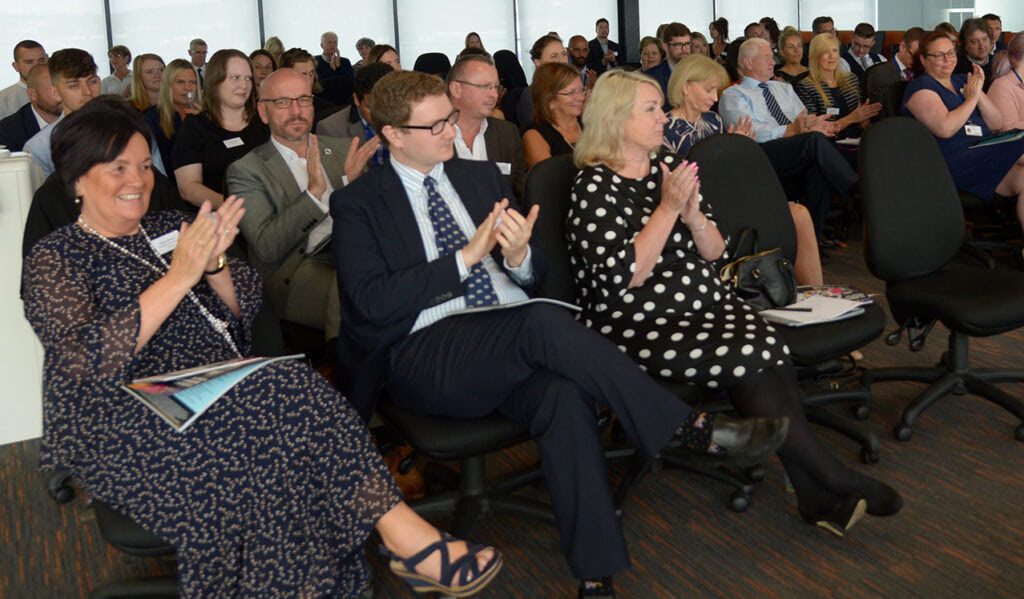Regional skills gaps placed centre stage at conference

IMMEDIATE action to create strong and meaningful partnerships between trainers, educators and employers has now become critical to achieving the career aspirations of tomorrow’s workforce and key to plugging the region’s skills gaps.
The hard-hitting message came from Sandra Kirkham, Managing Director of Progress to Excellence Group, one of the country’s biggest training and education providers with headquarters in Birkenhead, who this week joined a panel of other high profile leaders from the worlds of business, education, local authority and politics at the Liverpool Skills Summit.
Held at Wirral’s waterfront headquarters of The Contact Company and sponsored by Progress to Excellence Group and Peel Ports Group, the seminar was aimed at identifying how the skills gap across Liverpool City Region could be plugged.
In front of an audience of delegates from a broad spectrum of the business community, the panel discussed the scale of the skills shortage problem and what needs to be done to tackle it.
With health, manufacturing, maritime, visitor economy and energy all seen as major growth sectors for Liverpool City Region, the panellists were tasked with identifying what is being done to ensure that the conveyor belt of new recruits is keeping up with demand from employers.
Sandra (pictured front row, extreme left) said: “It’s not enough to only recognise skills gaps when young people are about to enter the workplace. Development gaps are visible at nursery stage due to disadvantage and they then develop into skills gaps as children become adults. Our role is to ensure we evenly spread equality of opportunity from an early age.
“It is vital that we act now to create strong and meaningful relationships with employers and produce collaborative working partnerships to build our workforce of the future.
“Without pathways of social mobility we are not sufficiently progressing as a vibrant economy.”
Treating young people as potential leaders of the future was also vital to business growth, she said, telling delegates: “It’s not enough to get young people in to make the tea and brush up. Giving them meaningful work is essential for their development as is coaching them to understand the roles of senior management and become involved in the many and varied aspects of the business.
“Diversity in the workplace is something that’s a major driving force in any business too. Just because one person doesn’t have particular skills in one area doesn’t mean they can’t excel in another. Also never assume if a young employee doesn’t grasp a task right away, that they’ll never get it right – so never give up on them.
“Each person, with their own special and different skills, can make a great contribution to a company’s success.
“And absolutely essential to young people achieving their workplace ambitions is to upskill and raise their motivation and aspirations.
“So we all need to look out for any new talent and discover our rising stars, the ones who can be nurtured and invested in so that they grow with the business.”
Questioned on the effectiveness of the Apprenticeship Levy, Sandra applauded the initiative – now into its second year – and said: “As a company that works with more than 2,000 employers throughout England, there needs to be more education within the business community about how the levy works.
“This is another area where we need to work collectively to give employers what they want to successfully take on and train apprentices and upskill their existing staff.
“The levy needs to be left alone – the money is there and it will get spent by employers now they are beginning to understand how it works and it will bring long-term benefit to the region.”
Any employers who would like to discuss the skills gap within their industry can email Progress to Excellence Group or call 0151-650 6933.











Responses